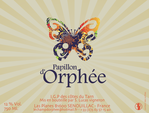
| Stephane Lucas's philosophy, in his own words: "My work is in keeping with natural wines. My purpose is to create a wine expressing the best of our local grape, the Braucol, on his native soil in the south west. Frustrated by years of service to “investors/wine makers”, I now want to do work without compromise, demanding but simple. Indeed, there is no lavish winery here, nor hi-tech equipment, just the bare minimum necessary to support the wine and the pleasure of drinking it. This is wine at its fullest but still modest and simple. More specifically, I grow my vineyard in accordance with the organic agriculture regulations (not certified however). The harvest is done by hand and when the grape has reached its optimum ripeness, that is to say, in no case over-ripe. Finally, I vinify my wine in the purest tradition without the addition of wine products. (...) I am working towards a biodynamic vineyard. (...) I already use the biodynamic preparations number 500 and 501 (plant extracts). For the rest, I strictly comply with the specifications of biodynamic farming. I even go a little further since, as a bio-compliant technician on my own vineyard, I test some bio products pending their approval: new form of copper, essential oils, clay, plant and algae extracts. I make no use of herbicides. Weeds are controlled by the mechanical and manual work of the soil. I let grass appear in the spring and autumn because the nature of the plants that emerge gives me an indication of soil conditions and therefore of the actions I need to take. I also do regular planting of cereals and legumes in the fall to increase soil porosity, to avoid leaving the soil bare during winter and to take advantage of the allelopathic effects of grass. In the spring, a very long and rigorous suckering guarantees a perfect structure of the vine. Five to six branches are kept on the stump to ensure excellent ventilation of the vegetation and grapes as well as to regulate the yield naturally. Sun and wind are the best additives. A little later in the season, a second run allows for the removal of “entrecoeurs” located in the fruiting area. These “ entrecoeurs” are useless for protection and maturation of the grape. I do not cut the tops of the branches and only resort to bending them when they reach a height of 2 meters. This procedure prevents the disruption of the hormonal rhythm of the plant. Usually, vegetation growth stops in mid July. I do this work myself and walk through the lot every other day so as to “stay in touch” with the vine. During this time, the vineyard requires every bit of attention. The manual harvest is done at optimum ripeness which in no case allows for over-ripeness. I have noticed that with over ripeness, we lose the pleasure of fresh fruit. You end up with much riper fruit…way too ripe in my opinion. The grapes are sorted systematically according to the old adage “you reap what you want to eat”. |
 |
| Papillon d'Orphée |
| 100% Braucol (Fer Servadou). IGP des Côtes du Tarn. Aged for 10 months in stainless steel tanks and racked. 300 cases made. 12% Alcohol. |
| Copyright © 2002-2017 VOS Selections, Inc. |